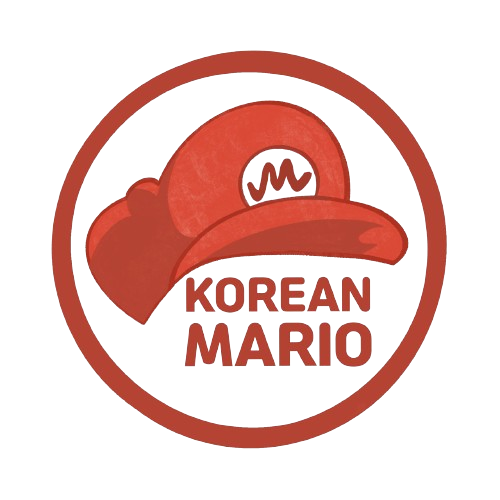If you’re reading this blog, chances are you:
- Have studied for the TOPIK before
- Are currently studying for it
- Or you’re considering taking the test soon
But here’s a question you may not have asked yourself yet: Is the TOPIK really the best way to reach your Korean learning goals? In this blog post, we’ll explore what the TOPIK test is, who it’s best suited for, and when it might actually be better to stop studying Korean just for the TOPIK.
What is TOPIK?
TOPIK stands for the Test of Proficiency in Korean. It’s a standardized exam created by the National Institute for International Education (NIIED), designed to measure Korean language ability in non-native speakers. It is commonly used for university admissions, work visa applications, and job qualifications in South Korea.
There are two main types:
| Type | Levels | Target Learners |
|---|---|---|
| TOPIK I | Level 1 & 2 | Beginners |
| TOPIK II | Level 3 to 6 | Intermediate to Advanced |
TOPIK tests your listening, reading, and writing skills—but not speaking (as of now).
Should You Take the TOPIK?
Let’s look at both sides of the coin.
✅ Reasons TO Study for the TOPIK
- You need the certificate for university admissions or work permits
- You enjoy structured goals and clear milestones
- You want to build strong grammar and reading comprehension
- You’re preparing for immigration or visa requirements
❌ Reasons to STOP Studying for the TOPIK
- Your main goal is speaking fluently with Korean friends
- You’re feeling demotivated or burnt out by textbook-style study
- You’re not using what you study in real-life conversations
- You’ve lost sight of why you started learning Korean in the first place
Be Honest With Yourself
Ask yourself: Why am I studying for the TOPIK?
Write down 3–5 reasons. Then ask, Is the TOPIK the best route to reach those goals? If your answers include things like “I want to chat confidently in Korean” or “I want to watch K-dramas without subtitles,” then TOPIK might not be aligned with your real goals.
How the TOPIK May NOT Help Your Fluency
1. It Doesn’t Measure Speaking
TOPIK doesn’t evaluate your pronunciation, conversation flow, or spoken fluency. If your main goal is to speak Korean confidently, you won’t get much speaking practice from prepping for TOPIK.
2. Vocabulary Overload
TOPIK prep involves memorizing lots of vocabulary and grammar that may not be useful in daily conversations.
3. Focus on Formal Language
You’ll learn formal grammar, passive constructions, and academic vocabulary—great for essays, but not for casual chatting.
4. Time and Motivation Drain
Preparing for TOPIK can be intense and time-consuming. If you’re not seeing results that matter to you, it can quickly become discouraging.
When Should You STILL Study for the TOPIK?
Here are some situations when continuing your TOPIK study makes sense:
| Situation | Why It Matters |
| Planning to study at a Korean university | TOPIK score is usually a requirement |
| Applying for a job in Korea | Some companies require a minimum TOPIK level |
| Need points for residency or visa | High TOPIK scores boost immigration points |
| Personal achievement | You want the challenge and recognition |
TOPIK Study Alternatives
If you’re stepping away from the TOPIK, it doesn’t mean you’re quitting Korean. It just means you’re shifting your strategy.
Here are more practical, conversation-based learning paths:
- Use apps like HelloTalk or Tandem for real chats
- Follow a conversation-based online course
- Join a language exchange group in your area
- Watch dramas, YouTube, or podcasts with subtitles, then without
- Use Anki decks focused on spoken Korean, slang, and idioms
TOPIK Readiness Checklist
Still thinking about taking the test? Here’s a quick checklist:
✅ Do I need TOPIK for school, work, or immigration? ✅ Am I comfortable reading and writing in Korean? ✅ Do I have a consistent study schedule? ✅ Have I practiced with full-length mock exams? ✅ Do I understand the test format and time limits? ✅ Am I ready for academic-style vocabulary and grammar?
If you answered “no” to most of these, then maybe it’s time to take a break from TOPIK-focused study and explore more interactive, real-world learning.
Final Thoughts
Studying for the TOPIK can be a great motivator—but it’s not the only path to fluency. If it aligns with your goals, go for it! If not, give yourself permission to pause or pivot. Korean is a beautiful, dynamic language meant to be spoken, heard, and experienced—not just tested.
🎯 Focus on why you started learning Korean in the first place, and make sure your study methods match your purpose.
For more TOPIK study tips and language learning tools, visit koreanmario.com!
Table of Contents

